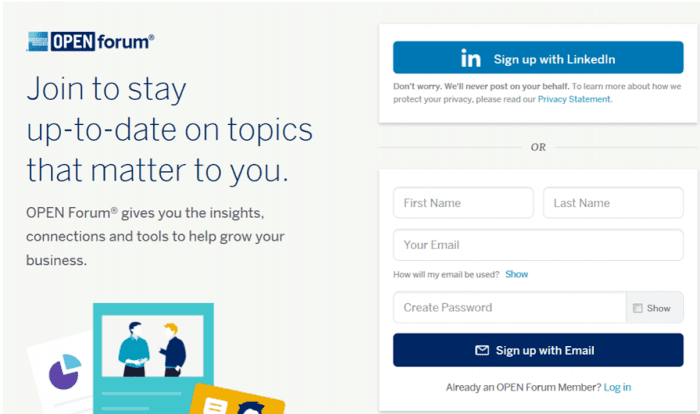Case studies on global brands and how they’ve created a story to support their content marketing strategies
According to a recent CMI survey, just 37% of B2B marketers and 40% of B2C marketers have a written content marketing plan in place. At the same time, content marketing continues to become more mainstream as a recognized channel to help brands communicate, story-tell and convince their own audience and prospects.
But there is a growing challenge – there appears to be a lack of true understanding as to what and how content can help meet the many different types of organizational objectives? In many examples, the reason why so many content marketing strategies fail is because there simply is no business case.
Where a number of content strategies fall flat is that they run right into the tactical elements of content marketing e.g. blog posts, videos, whitepaper downloads, PDFs – these are all fine to do but the mindset we are looking to change is to start with an organization vision or unique selling point (USP)
It’s clear that brands need to be offering a USP – a reason for connecting and adding a utility to support their audience needs…something that users will go and search for..a service that helps the brand stand out from the competition and supports their wider business goals.
So how do you start to even build a vision?
Your organization’s vision should help support your content strategy which helps to articulate who your organization is and what it stands for – this requires total organization buy-in.
So think about bringing together all the various departments and internal functions that are currently creating, and have a remit or requirement to create, content that is distributed outside of your organization.
You need to question and understand each internal dept with the following questions:
- What is it they are trying to do?
- What is their requirement for this content being produced?
- What is the pain point they are trying to address?
By doing this, it will help you identify your business purpose and the role content will play in meeting your one overall vision. From here, this should help you define better what it is you as a business is actually trying to fulfill.
For example, are we considering a content marketing approach to help with the objective of building a subscribed audience? Or is it to grow more leads or maybe to win more customers? Or, just for brand awareness?
What’s missing with the majority of content marketing initiatives is a lack of strategy or a framework from which to follow that connects the organizational objectives to the content marketing approach.
A great example of a global brand that has positioned itself around a story in building a subscribed audience is credit card company AMEX and the launch of their online Open Forum.
This is a platform built by AMEX to bring together small business owners where they can connect and discuss with others the challenges they have in running their business.
AMEX is not “selling” on Open Forum, more providing a platform that answers burning questions of start-ups and SME’s in running a business. Their website provides some key indicators that it has been built and tailored for their audience first:
1. Site navigation
Their site navigation relates to 5 sections that resonate with their target audience – e.g. how to build my business team, how to manage money and how to get customers
2. Building a subscribed audience
There is a clear call to action associated with their content pages for business owners to sign up and receive valuable business advice. As well as signing up with email, there is also an option to sign up with your LinkedIn profile – a clear sign it’s considered their business persona.
It’s a great example of building on the AMEX brand name and the types of audience and communities it resonates with
Question: Is there a similar community your brand could be helping or could be building your story from?
Purpose & Goals
Start to think about building a business case before launching into the more tactical element of content marketing (question for your organization: – “if you literally stopped what you were doing in terms of launching blog articles, social media activity etc, would anyone really miss you?”)
Building your brand around a story is an essential ingredient to help not only position yourself within a market but also help build a common vision and buy-in from across your organization.
One of my favourite examples comes from Nathan’s Famous – a hot dog restaurant chain based in the USA
If you happen to be in Coney Island, on July 4th you’re probably there to celebrate something very different – the Annual Hot Dog World Championships.
Legend has it that this annual celebration commenced in 1916 after four people decided to prove to one another who was the most patriotic by who could eat the most hot dogs.
Fast forward to 2017 and the competition is going from strength to strength attracting thousands of spectators who witness the showdown that takes place at Nathan’s Famous, the hot dog restaurant responsible for the birth of this very American eat-off.
As well as playing host since 1916, Nathan’s Famous sponsors the event and has the important task of replenishing the participants with as many hot dogs as they can stomach.
The aim of the challenge is to see how many hot dogs you can eat within a 10 minute period, complete with bun.
Nathans Famous has become synonymous with this annual food challenge and has helped define their business and in doing so, creating a key differentiator through storytelling and delivering global brand awareness. This has now turned into an annual event, every July 4th – the World Hot Dog Championships, which is now broadcast on ESPN since 2004.
Is it a success? – you only have to ask ESPN, they are in the 7th year of broadcasting the event through their digital channel and at the same time, creating a brand from nothing for Nathans.
So take a look at your business and get into the spirit of research. Identify and dig into the history of your organization – what was the history and the reason for it be established? What was the purpose of the founder and what were their motivations?
An organization’s history and background are valuable assets and an opportunity to use as a unique selling point when looking to differentiate your brand – is there an opportunity here for you to build an opportunity through storytelling that can elevate your brand to build a voice?



